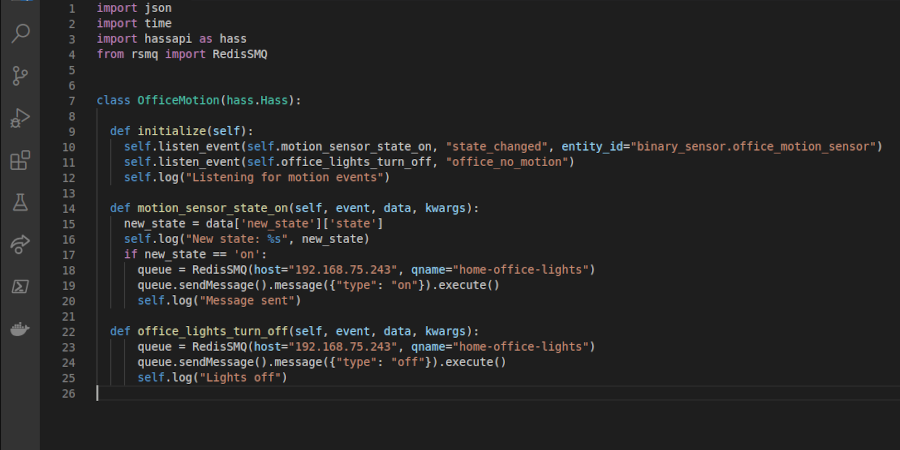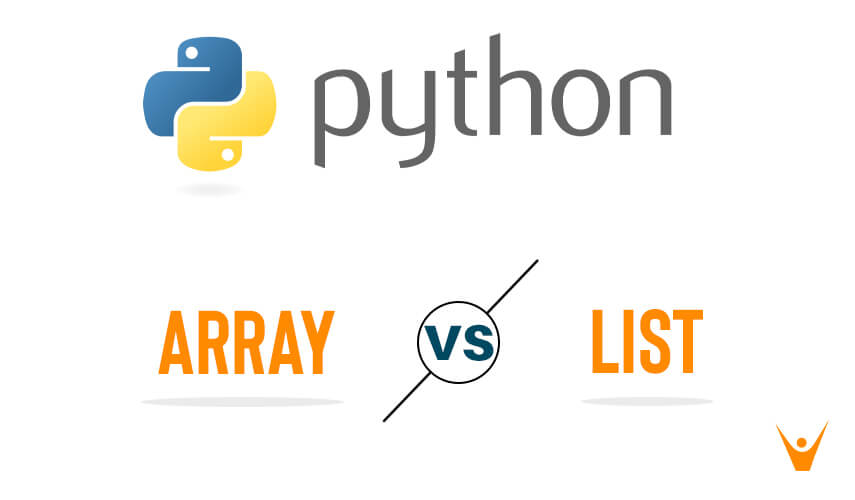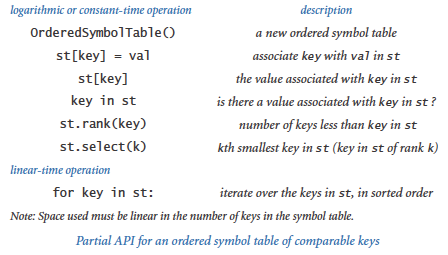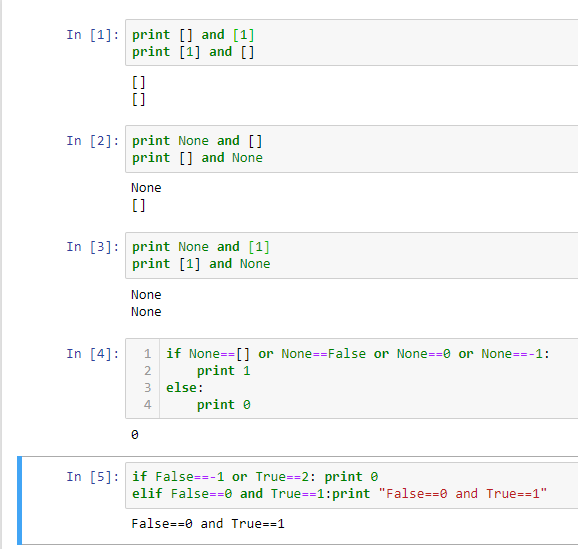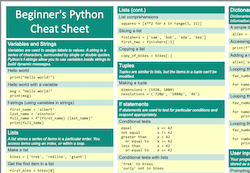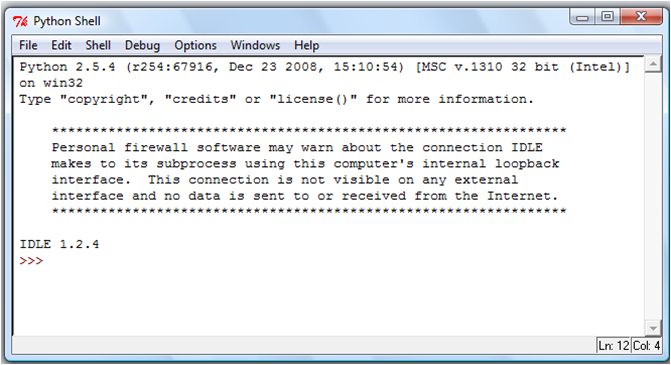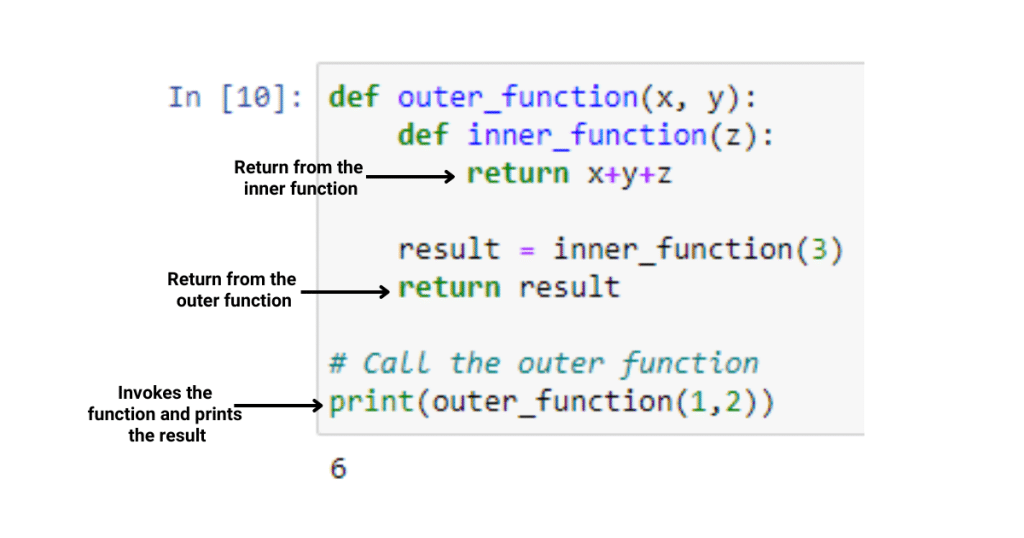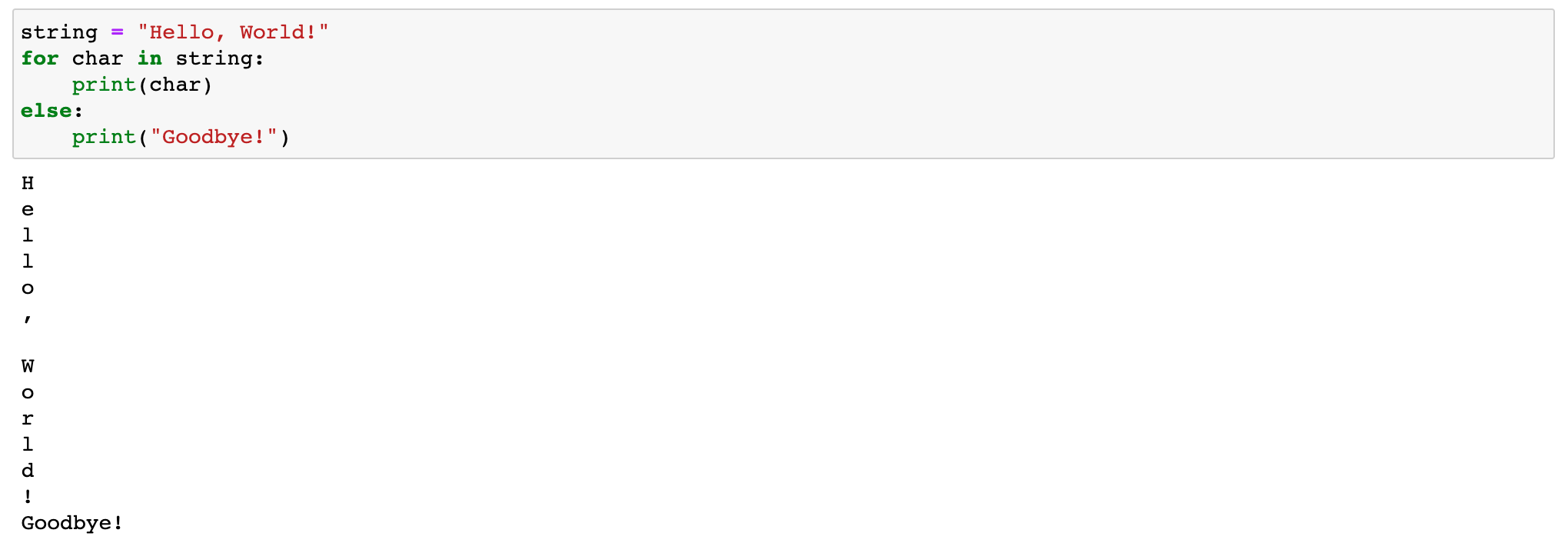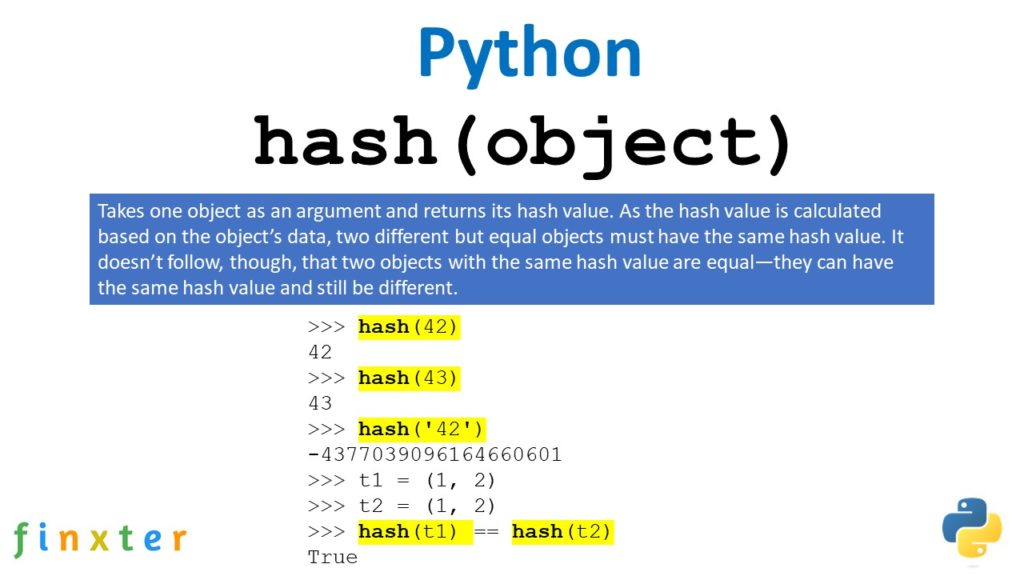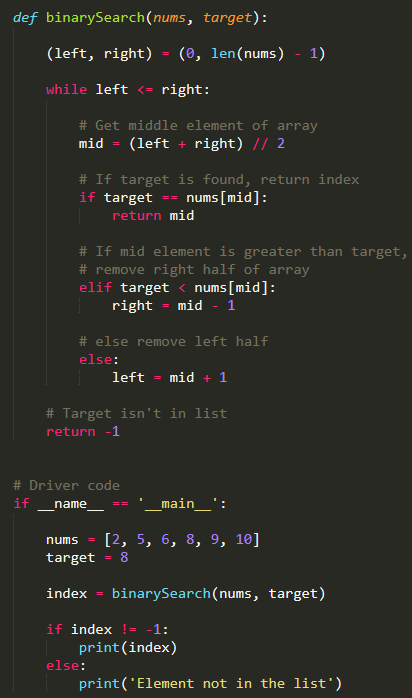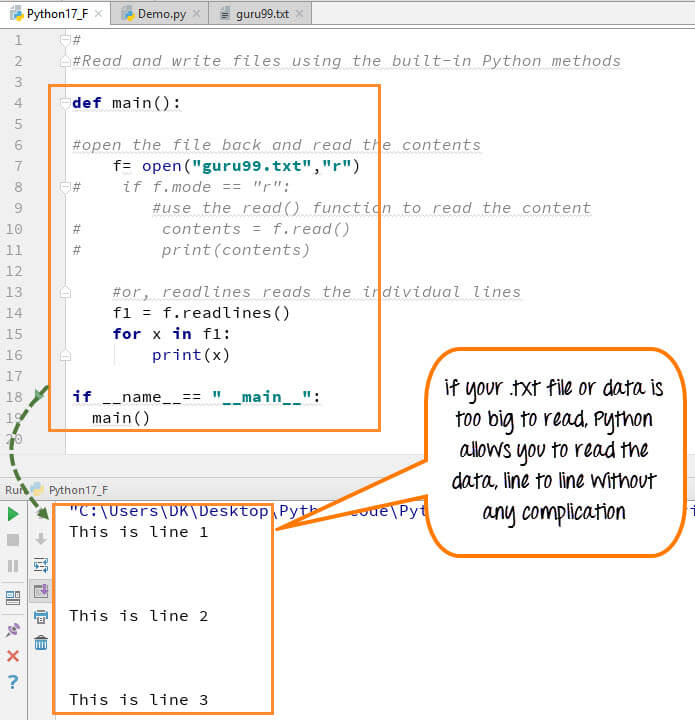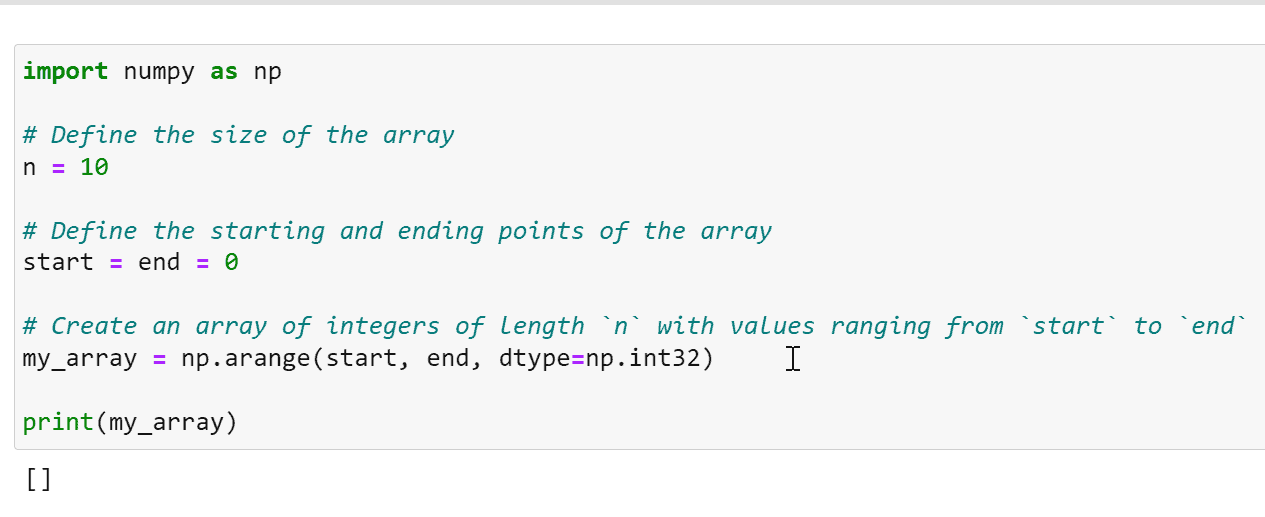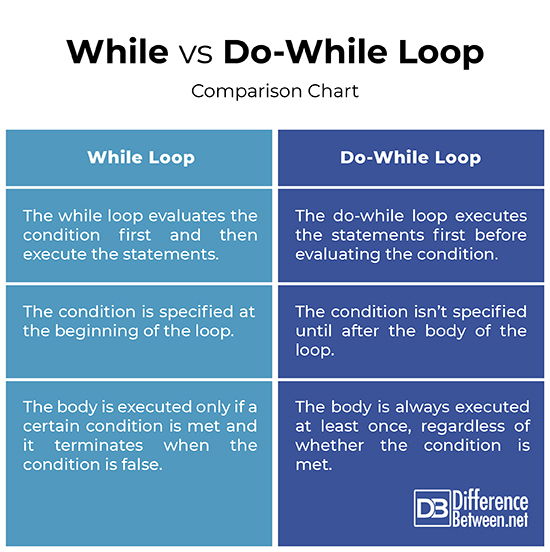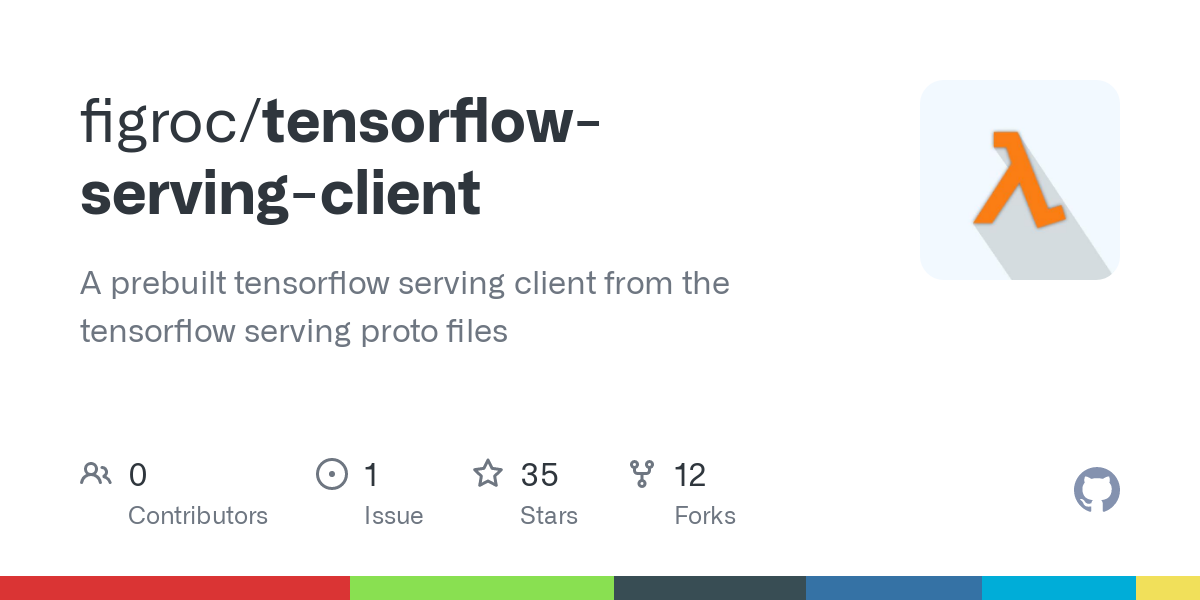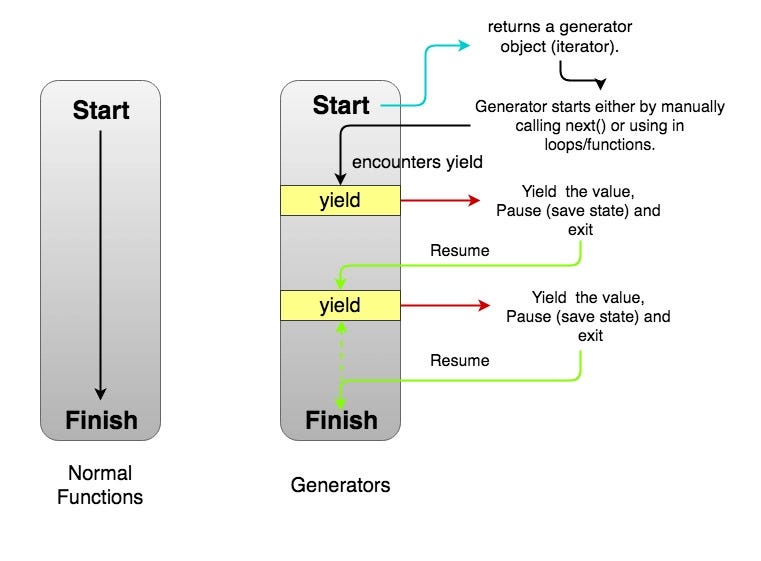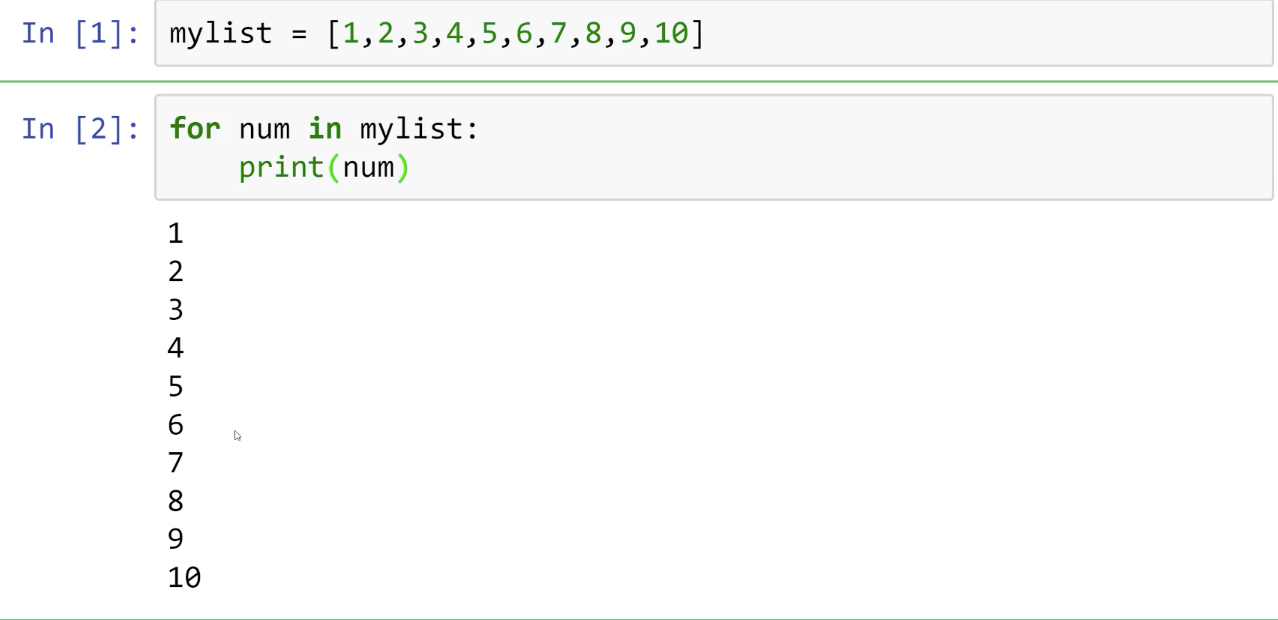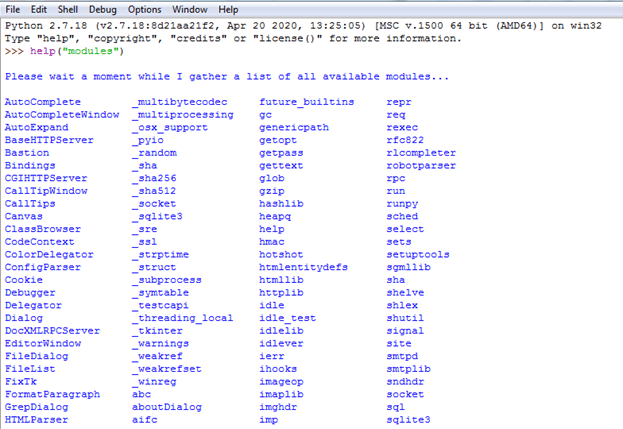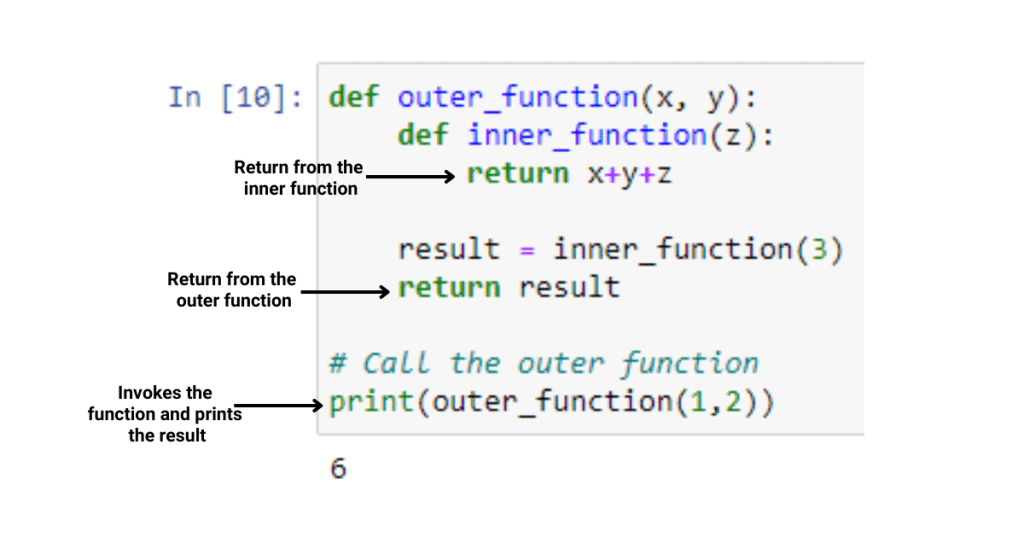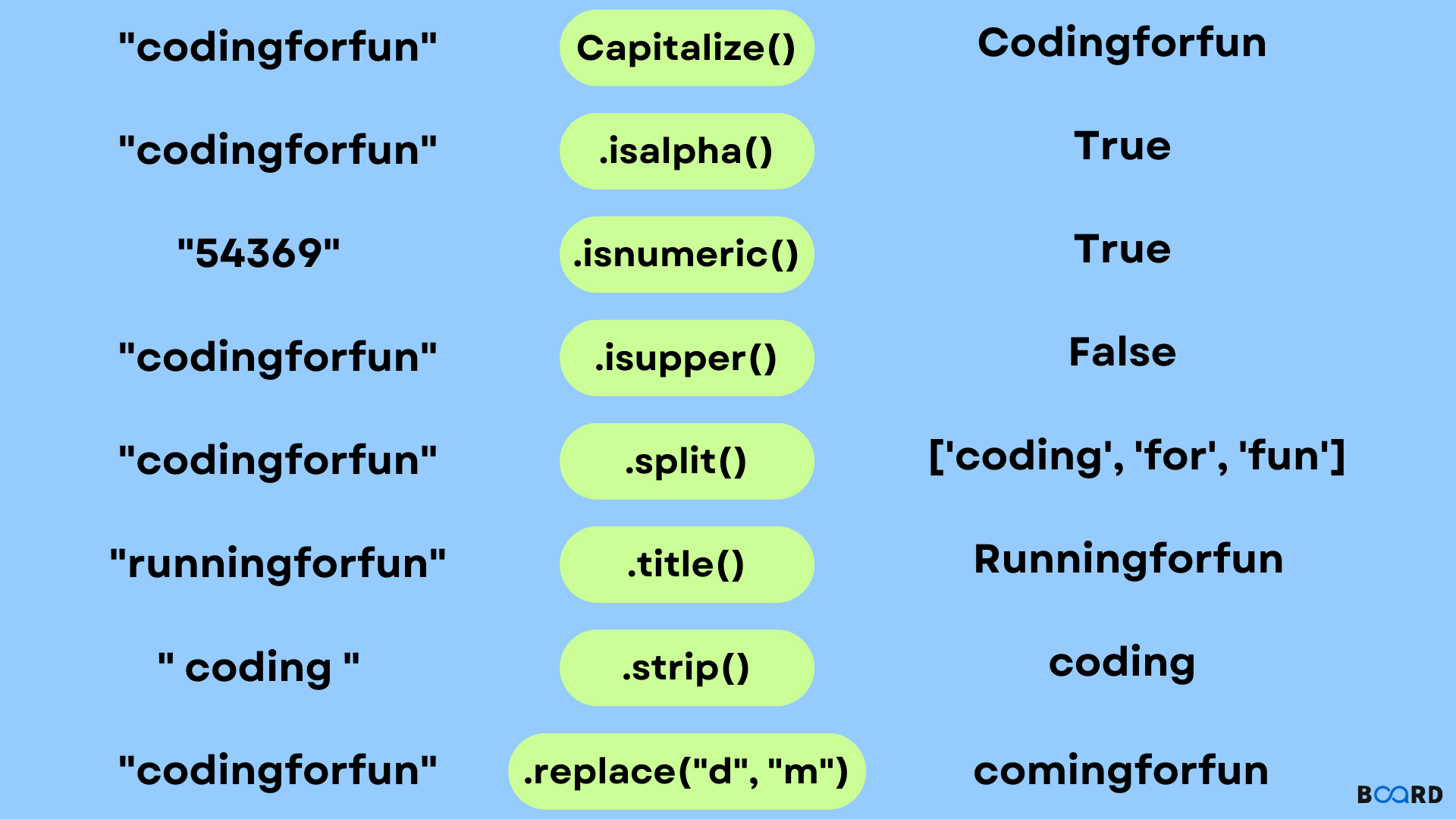What is a parameter in Python example?
What is a parameter in Python example?
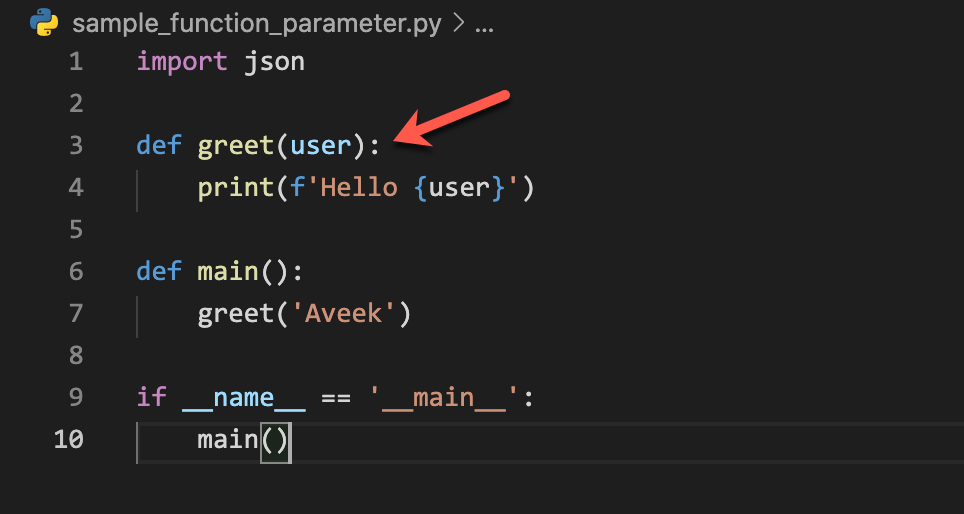
A parameter in Python is an input to a function that allows you to customize its behavior without changing the source code of the function itself. In other words, parameters are variables that are passed to a function when it's called and are used within the function to control its execution.
Let's consider a simple example:
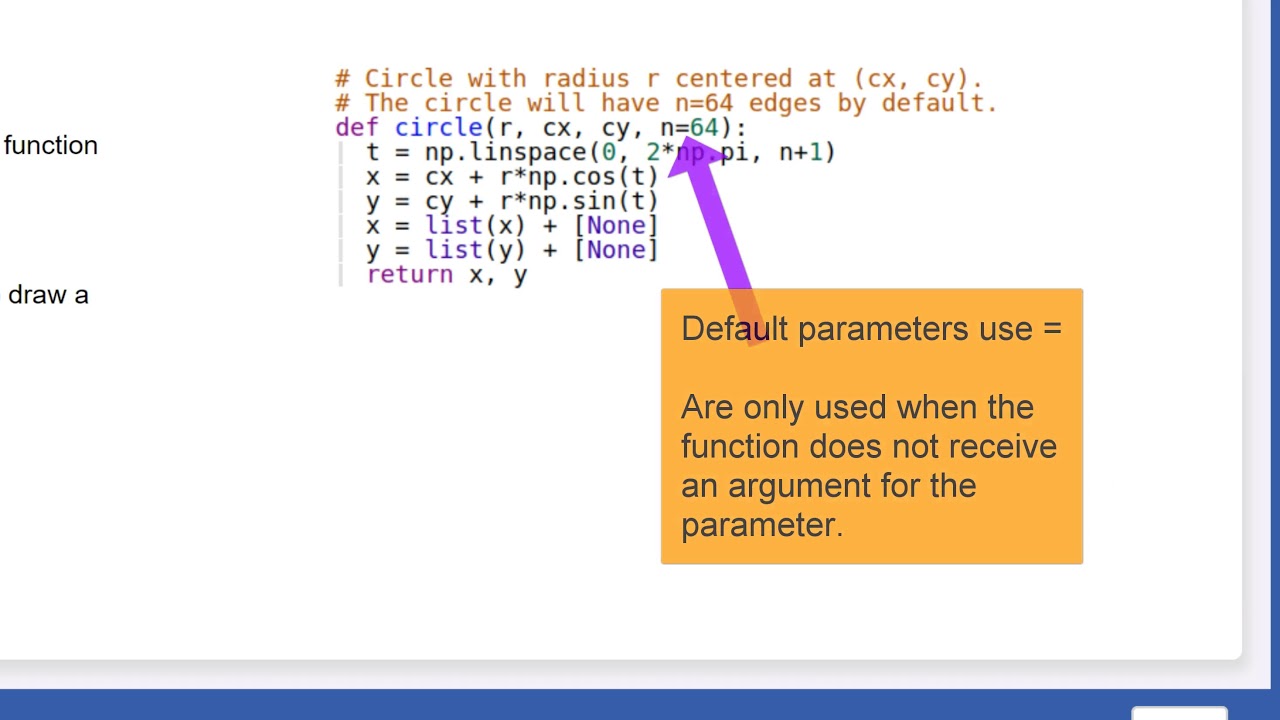
def greet(name):
print(f"Hello, {name}!")
greet("Alice")
In this example, name is a parameter of the greet function. When we call the greet function with the argument "Alice", Python assigns the value "Alice" to the name variable within the scope of the greet function.
Here are some key characteristics of parameters in Python:
Positional Parameters: You can specify parameters by their position in the function definition, like this: def my_function(x, y):
print(f"Value of x: {x}, Value of y: {y}")
my_function(10, 20)
In this example, x and y are positional parameters that are passed to the function.
def my_function(x=0, y="default"):
print(f"Value of x: {x}, Value of y: {y}")
my_function(y="Hello", x=10)
In this example, x and y are keyword parameters that are passed to the function.
def my_function(x=0, y="default"):
print(f"Value of x: {x}, Value of y: {y}")
my_function() # This will use the default values
In this example, my_function has a default value for both x and y.
def sum_numbers(*numbers):
total = 0
for number in numbers:
total += number
return total
print(sum_numbers(1, 2, 3)) # This will add up the three numbers and return their total.
In this example, sum_numbers accepts any number of parameters and adds them up.
def greet(name="default"):
print(f"Hello, {name}!")
greet() # This will use the default name
greet("Alice") # This will use "Alice" as the name
In this example, greet has an optional parameter that defaults to "default" if no value is provided.
These are some of the key characteristics and examples of parameters in Python. Parameters can be used to customize functions, allowing you to write more flexible and reusable code.
Types of parameters in python example
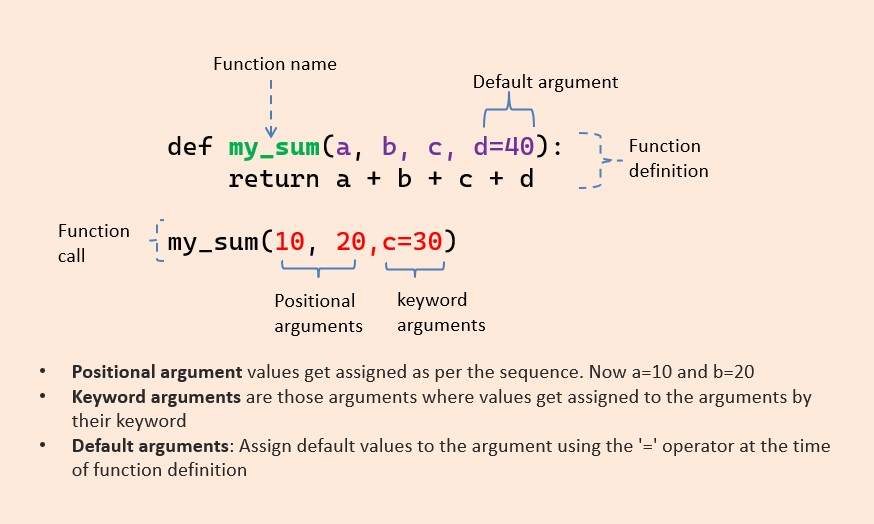
I'd be happy to respond in English for this question!
Types of Parameters in Python:
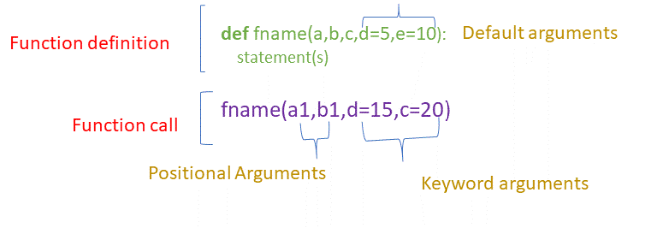
Python is a powerful programming language that supports various types of parameters or function arguments. Here's a breakdown of the most common types:
Positional Arguments: These are the most basic type of parameters. They are passed to functions based on their position within the function definition.Example:
def add_numbers(a, b):
return a + b
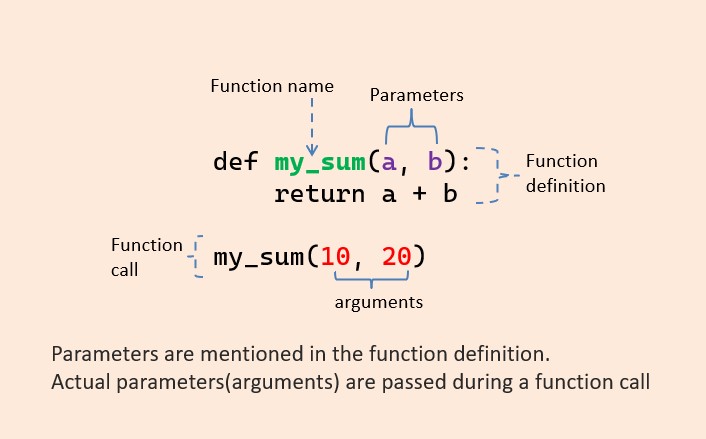
result = add_numbers(10, 20)
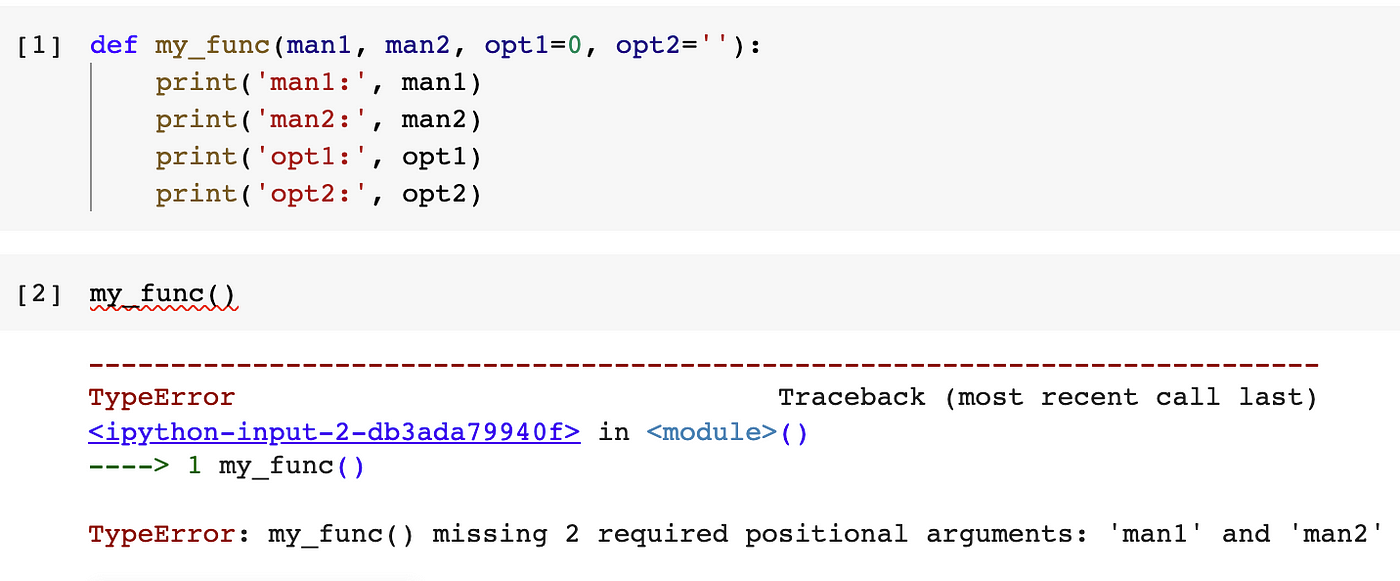
print(result) # Output: 30
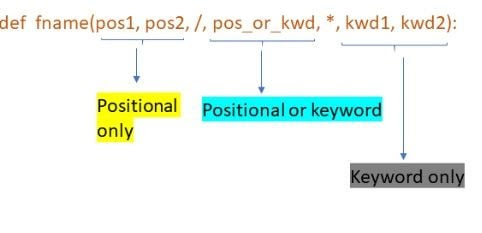
Example:
def greet(name, age):
print(f"Hello {name}, you are {age} years old.")
greet(age=25, name="John")
Output: Hello John, you are 25 years old.
Example:
def greet(name='World', age=None):
print(f"Hello {name}, you are {age} years old.")
greet() # Output: Hello World, you are None years old.
greet(age=25) # Output: Hello World, you are 25 years old.
Example:
def greet(*names):
for name in names:
print(f"Hello {name}!")
greet('John', 'Mary', 'Jane')
Output: Hello John!
Output: Hello Mary!
Output: Hello Jane!
Example:
def greet(**kwargs):
for key, value in kwargs.items():
print(f"{key}: {value}")
greet(name='John', age=25)
Output: name: John
Output: age: 25
Example:
def greet(*args):
for arg in args:
print(arg)
greet('John', 'Mary', 'Jane')
Output: John
Output: Mary
Output: Jane
Example:
def greet(**kwargs):
for key, value in kwargs.items():
print(f"{key}: {value}")
greet(name='John', age=25, location='NYC')
Output: name: John
Output: age: 25
Output: location: NYC
These are the main types of parameters or function arguments in Python. Mastering these will help you write more robust and efficient code!
